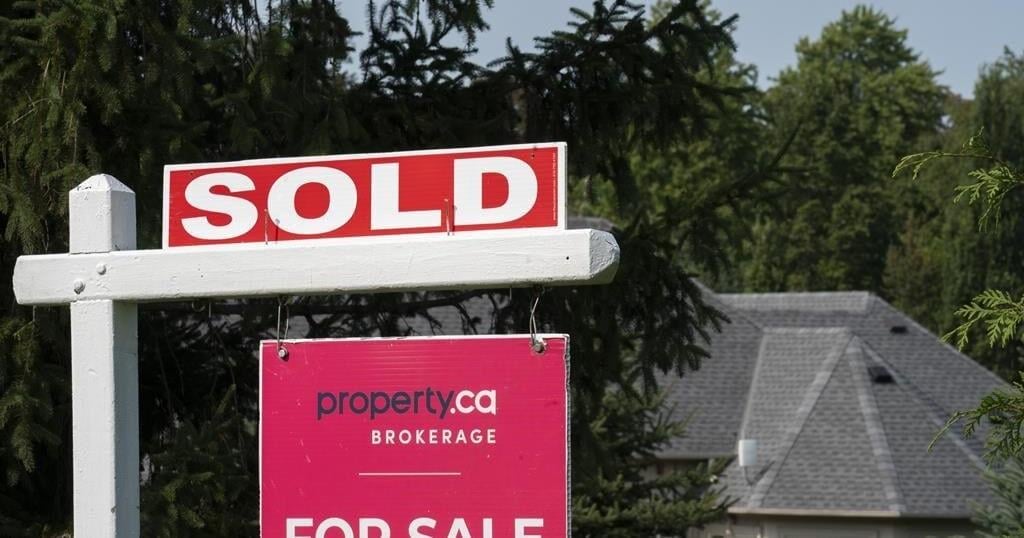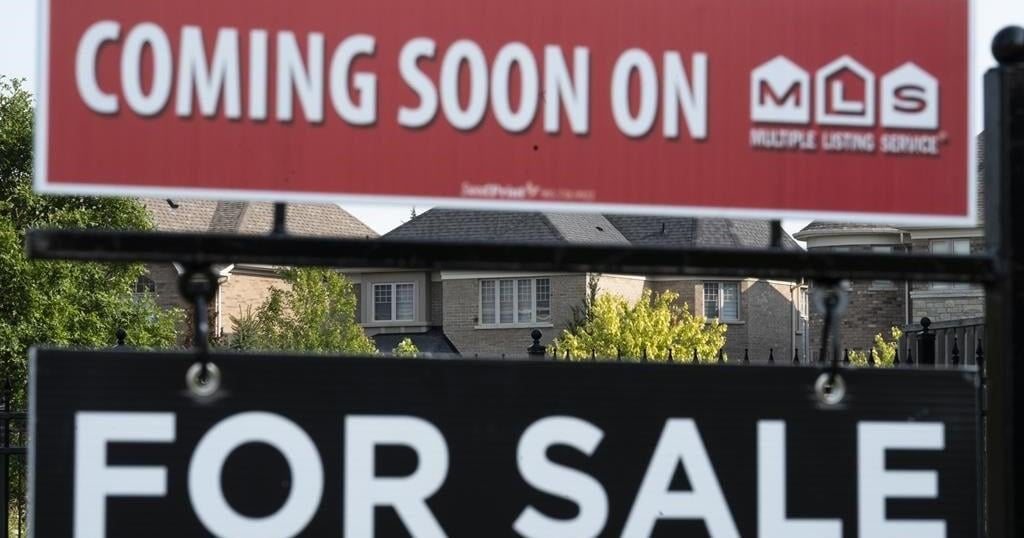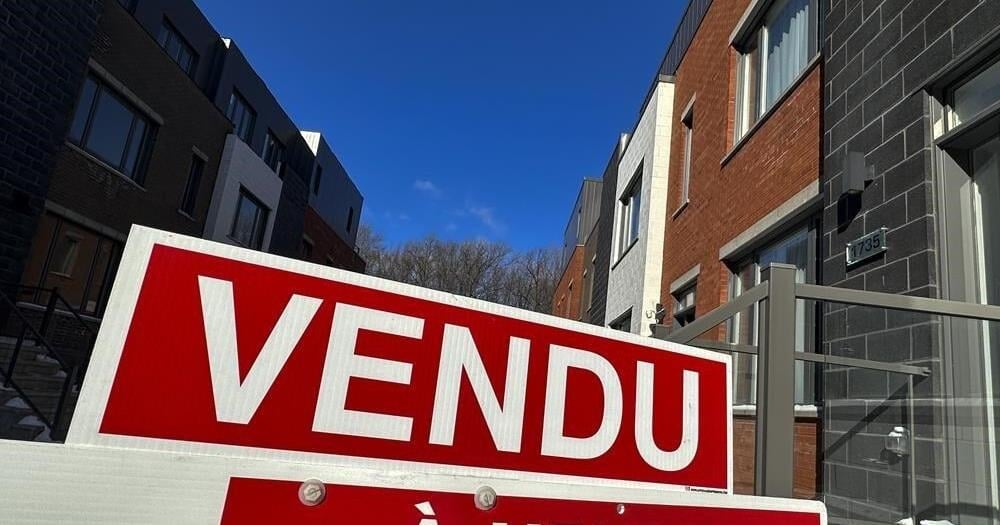Chinese real estate developer Evergrande has disclosed losses of $81 billion over 2021 and 2022, underscoring how its massive debts remain a serious concern for the financial health of the Chinese property sector — and the world’s second-largest economy overall.
Real eState
China’s Evergrande reports $81 billion in losses amid real estate woes

China’s post-pandemic recovery is threatened by the sluggish real estate sector, which is still responsible for a quarter of the economy’s growth.
As one of China’s largest builders of apartments, Evergrande slid rapidly into financial distress in late 2021, causing alarm around the world as some analysts feared a collapse that could be China’s “Lehman moment” — and the start of another financial crisis.
Instead off letting the company implode under a $300 billion pile of debt, Chinese authorities opted for what analysts called a “controlled demolition” — essentially managing the corporation through a gradual collapse. Since then, the company has continued to limp on, posing a continual headache for the policymakers who are trying to restore confidence in the real estate sector.
The group finally came clean about the extent of its near-fatal cash crunch and the slow progress it has made toward resolving its financial difficulties when it released a repeatedly delayed earnings report late on Monday local time.
Aside from the $81 billion in losses, Evergrande’s total liabilities continued to grow in 2022, reaching $335 billion compared with just $251 billion in assets, according to the earnings statement.
That disclosure underscored the Chinese government’s tricky effort to tackle real estate debt without bursting a possible property bubble, as it tries to ensure a tepid post-pandemic recovery doesn’t get knocked off track by a worsening real estate slump.
The Chinese economy missed expectations to grow by 6.3 percent year over year in the second quarter, according to data released on Monday. That slower than expected recovery is in part caused by falling property investment, which was down 20.6 percent in June, according to Reuters.
Lingering uncertainty over Evergrande’s fate reflects the poor state of the sector — and threatens to worsen it, analysts warn.
“Evergrande’s insolvency, beyond its own liquidity coming to a standstill, is also related to the cooling of housing sales” and the increased pressure for indebted property developers to finish projects, Xie Yifeng, president of the China Urban Real Estate Research Institute, told state-run Beijing Business Today. “It’s a vicious cycle.”
The continued insolvency means that “simple debt restructuring may be unable to save Evergrande,” Chen Xin, a finance professor at Shanghai Jiao Tong University, wrote on Weibo, China’s answer to Twitter. The situation is “tantamount to disaster” for the company’s creditors, Chen added.
Surging demand for homes and government reliance on land sales for income meant that developers like Evergrande had easy access to bank loans and could aggressively expand using a borrow-to-build model throughout the 1990s and 2000s.
But the government soon became wary of ballooning debt that might cause defaults, and regulators severely limited borrowing in 2020. Evergrande was left on the verge of collapse, in a crisis that many saw as marking the end for China’s housing boom.
Reduced access to loans has left property developers struggling to finish apartments, hurting buyer confidence and dragging down sales. Floor area bought in June fell by 28 percent compared with the same period a year before, official data released on Monday showed.
That slump extends a dilemma for Chinese policymakers, who are torn between stimulus measures to revive confidence and determination to defuse financial risks that could ultimately do more damage to the economy.
So far, however, Evergrande has neither collapsed nor significantly improved its financial situation.
Most of the $81 billion net losses disclosed on Monday was accumulated in 2021, resulting in a crisis and promises to restructure at the end of that year. But even last year, it still reported nearly $15 billion in net losses, underscoring how the company has struggled to substantially resolve its insolvency problems.
In another sign of the group’s uncertain financial future, Evergrande’s external auditor, Prism, said it could not comment on the financial statements because it was unable to obtain sufficient evidence regarding the group’s ability to meet its obligations.
Hong Kong-traded shares in Evergrande have been suspended since March 2022, meaning the company is just two months away from being delisted from the stock exchange.
Evergrande also said on Monday that it will meet with its overseas creditors this month to try to reach a deal on debt restructuring.

Real eState
Mortgage rule changes will help spark demand, but supply is ‘core’ issue: economist

TORONTO – One expert predicts Ottawa‘s changes to mortgage rules will help spur demand among potential homebuyers but says policies aimed at driving new supply are needed to address the “core issues” facing the market.
The federal government’s changes, set to come into force mid-December, include a higher price cap for insured mortgages to allow more people to qualify for a mortgage with less than a 20 per cent down payment.
The government will also expand its 30-year mortgage amortization to include first-time homebuyers buying any type of home, as well as anybody buying a newly built home.
CIBC Capital Markets deputy chief economist Benjamin Tal calls it a “significant” move likely to accelerate the recovery of the housing market, a process already underway as interest rates have begun to fall.
However, he says in a note that policymakers should aim to “prevent that from becoming too much of a good thing” through policies geared toward the supply side.
Tal says the main issue is the lack of supply available to respond to Canada’s rapidly increasing population, particularly in major cities.
This report by The Canadian Press was first published Sept. 17,2024.
The Canadian Press. All rights reserved.
Real eState
National housing market in ‘holding pattern’ as buyers patient for lower rates: CREA

OTTAWA – The Canadian Real Estate Association says the number of homes sold in August fell compared with a year ago as the market remained largely stuck in a holding pattern despite borrowing costs beginning to come down.
The association says the number of homes sold in August fell 2.1 per cent compared with the same month last year.
On a seasonally adjusted month-over-month basis, national home sales edged up 1.3 per cent from July.
CREA senior economist Shaun Cathcart says that with forecasts of lower interest rates throughout the rest of this year and into 2025, “it makes sense that prospective buyers might continue to hold off for improved affordability, especially since prices are still well behaved in most of the country.”
The national average sale price for August amounted to $649,100, a 0.1 per cent increase compared with a year earlier.
The number of newly listed properties was up 1.1 per cent month-over-month.
This report by The Canadian Press was first published Sept. 16, 2024.
The Canadian Press. All rights reserved.
Real eState
Two Quebec real estate brokers suspended for using fake bids to drive up prices

MONTREAL – Two Quebec real estate brokers are facing fines and years-long suspensions for submitting bogus offers on homes to drive up prices during the COVID-19 pandemic.
Christine Girouard has been suspended for 14 years and her business partner, Jonathan Dauphinais-Fortin, has been suspended for nine years after Quebec’s authority of real estate brokerage found they used fake bids to get buyers to raise their offers.
Girouard is a well-known broker who previously starred on a Quebec reality show that follows top real estate agents in the province.
She is facing a fine of $50,000, while Dauphinais-Fortin has been fined $10,000.
The two brokers were suspended in May 2023 after La Presse published an article about their practices.
One buyer ended up paying $40,000 more than his initial offer in 2022 after Girouard and Dauphinais-Fortin concocted a second bid on the house he wanted to buy.
This report by The Canadian Press was first published Sept. 11, 2024.
The Canadian Press. All rights reserved.
-

 Politics9 hours ago
Politics9 hours agoNew Brunswick Premier Blaine Higgs expected to call provincial election today
-

 Sports4 hours ago
Sports4 hours agoArch Manning to get first start for No. 1 Texas as Ewers continues recovery from abdomen strain
-

 News21 hours ago
News21 hours agoAlberta Premier Smith aims to help fund private school construction
-
Media9 hours ago
Sutherland House Experts Book Publishing Launches To Empower Quiet Experts
-

 Investment8 hours ago
Investment8 hours agoCanada’s Probate Laws: What You Need to Know about Estate Planning in 2024
-

 News9 hours ago
News9 hours agoQuebec won’t fund graphite mine project tied to Pentagon; locals claim ‘victory’
-

 Politics8 hours ago
Politics8 hours agoNew Brunswick Premier Blaine Higgs kicks off provincial election campaign
-

 Sports4 hours ago
Sports4 hours agoFormer Canada captain Atiba Hutchinson tells his story in ‘The Beautiful Dream”

















